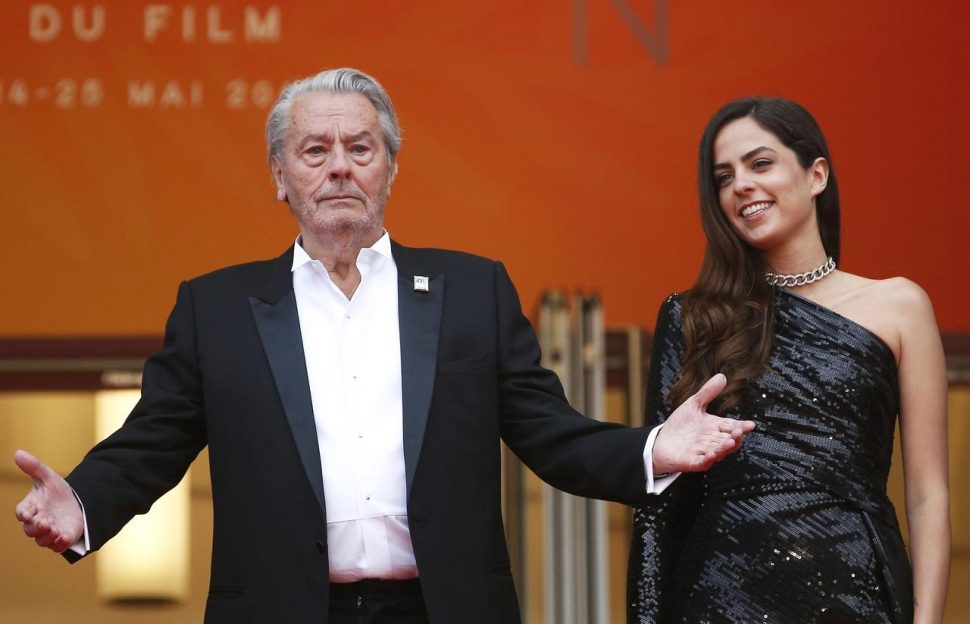CANNES, France, (Reuters) – An emotional Alain Delon received a prize for his six decade-long acting career yesterday as the Cannes Film Festival shrugged off criticism prompted by his views on women and same-sex couples to give him an honorary Palme d’Or.
Delon’s hearthrob good looks and roles in major movies throughout the 1960s and 1970s made him an icon in France and he was received with a rapturous standing ovation by the crowd at a special ceremony at the festival on the French Riviera.
The decision to honour the 83-year-old actor has been controversial particularly outside France, sparking an online petition in the United States which achieved more than 25,500 signatories.
“One thing I’m sure about is that if there’s something I’m proud of, really, the only thing, it’s my career,” Delon told the gala. “And this Palme d’Or was given to me for my career, for nothing else and that’s why I’m happy, and pleased, and satisfied.”
Delon, who received the prize from his daughter Anouchka Delon, has starred in films including Luchino Visconti’s “The Leopard”, which won the top prize at Cannes’ cinema showcase in 1963.
He has inflamed public opinion over the years, including by declaring his friendship for French far-right politician Jean-Marie Le Pen, and has admitted to slapping women.
Earlier yesterday, Delon stood by some of his views in an interview with France’s Journal Du Dimanche (JDD) and said other comments attributed to him had been distorted, as he added that as an actor, he was irreproachable.
“I’m not against gay marriage, I don’t care: people should do as they please,” he was quoted as saying. “But I’m against adoption by two people of the same sex.”
“I said I’d slapped a woman? Yes. And I should have added that I’ve received more slaps than I’ve ever given. I’ve never harassed a woman in my life. They, however, harassed me a lot.”
Delon said he was “right-wing, full stop” and was not a supporter of the far-right.
In the wake of the “Me Too” movement to demand greater respect and representation for women, which erupted following a wave of sexual harassment scandals that rocked the movie industry, the prize for Delon sparked questions over its timing.
“The festival has really tried to make great strides with their organisation and … this year they doubled the number of women in competition,” said Rhonda Richford, a Hollywood Reporter journalist based in France. “And so I think that doing that on one hand and turning around and giving this just shows an error in judgement.”
In the run-up to Cannes, Melissa Silverstein, the founder of women’s advocate group Women and Hollywood, called out the festival for honouring “these abhorrent values” with Delon’s prize.
Actress Eva Longoria told reporters at another red carpet party in the southern French city on Sunday that she “understood how it could upset some people.”
But Cannes’ festival organisers defended their choice, saying Delon was “not perfect” but was being recognised for his acting career.
Some fellow actors have also come to Delon’s defence.
“What Alain Delon says is his own business, whether we agree with him or not,” said French actress Virginie Ledoyen, who is president of the jury handing out Cannes’ “Queer Palm” award for LGBT-relevant films this year. “He’s a magnificent actor who really shaped cinema.”

